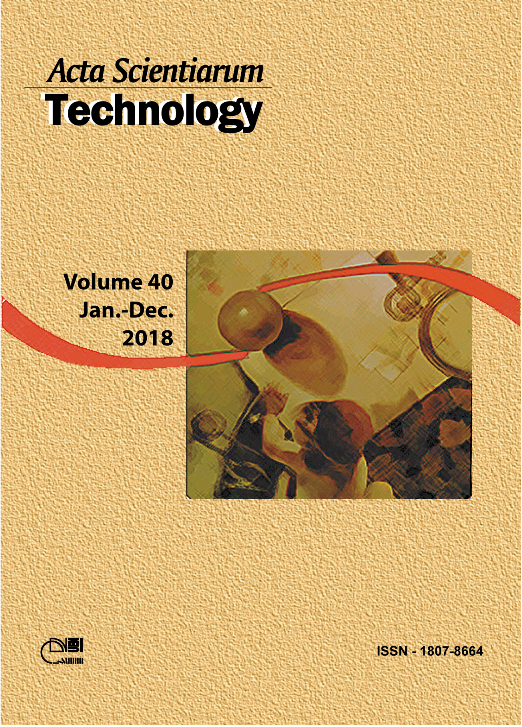<b>Artificial neural networks to control chlorine dosing in a water treatment plant
DOI:
https://doi.org/10.4025/actascitechnol.v40i1.37275Palavras-chave:
computational intelligence, process optimization, set-point control, water treatment plant.Resumo
Artificial neural networks in the multivariable control of chlorine dosing in the post-chlorination stage in a water treatment plant in the Greater São Paulo, Brazil, are analyzed. The plant has constant fluctuations in chlorine demand caused by natural influences related to raw water from surface source. Modeling and computer simulation were implemented in MATLAB/Simulink® environment, according to the physical and operational characteristics of the water treatment plant. Moreover, a Proportional-Integral (PI) controller was incorporated to provide better stability. Simulation results showed improved stability of free residual chlorine when compared to method currently employed, i.e. Proportional-Integral-Derivative (PID) controller that would reduce chlorine consumption in water treatment process.
Â
Downloads
Downloads
Publicado
Como Citar
Edição
Seção
Licença
DECLARAÇíO DE ORIGINALIDADE E DIREITOS AUTORAIS
Declaro que o presente artigo é original, não tendo sido submetido í publicação em qualquer outro periódico nacional ou internacional, quer seja em parte ou em sua totalidade.
Os direitos autorais pertencem exclusivamente aos autores. Os direitos de licenciamento utilizados pelo periódico é a licença Creative Commons Attribution 4.0 (CC BY 4.0): são permitidos o compartilhamento (cópia e distribuição do material em qualqer meio ou formato) e adaptação (remix, transformação e criação de material a partir do conteúdo assim licenciado para quaisquer fins, inclusive comerciais.
Recomenda-se a leitura desse link para maiores informações sobre o tema: fornecimento de créditos e referências de forma correta, entre outros detalhes cruciais para uso adequado do material licenciado.



















